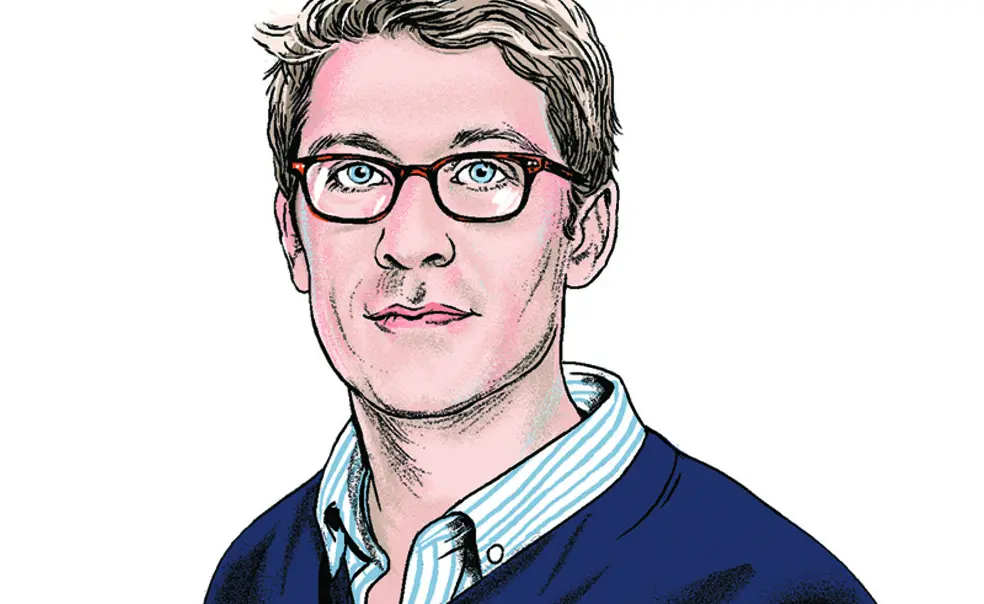Economist Owen Zidar Examines Equality
Owen Zidar’s interest in economics was piqued during the 2007-08 financial crisis when he was “trying to understand what’s … going on, how widespread are these effects going to be, and what should we do about it?”
When Owen Zidar took his first economics course at Dartmouth College, he found enjoyment in the way economists think about the world. During his doctoral studies at the University of California, Berkeley, he worked for the Obama administration — first with the National Economic Council, then the Council on Economic Advisers — and saw firsthand the impact of his research: “If you design policies a bit better, you can help millions of people,” he says. Today, Zidar is a professor in Princeton’s Department of Economics and the School of Public and International Affairs, where his research focuses on tax policy and sources of, and potential solutions to, rising income inequality in the United States.
Zidar’s Work: A Sampling

Hidden Wealth
Zidar’s research highlights the role of private firms in generating massive wealth for a relatively small number of Americans. While analyzing tax returns from the U.S. Treasury, Zidar found that people in the top 1% who own private firms “are way more prevalent than you might expect from reading the newspaper,” he says. These “regional millionaires” largely fly under the radar, yet collectively earn far more than executives at publicly traded companies. Zidar says he believes that understanding the amount of wealth concentrated in private firms is crucial for developing more effective tax policies.

Costly Care
Another focus of Zidar’s research is “the effect of rising health-care costs on labor market inequality and how much more college-educated people earn relative to [non-college-educated people].” In the United States, more than 50% of adults receive health insurance through their employer. Employee health-care plans have become so expensive — on average, $12,000 annually for a single adult, or $20,000 for a family plan — that employers seeking low-wage workers are often stymied by the cost of providing health care. Zidar theorizes that financing health-care plans through a payroll tax, rather than the head tax that is used now, would increase employment opportunities for non-college-educated workers, helping to reduce income inequality between those with college degrees and those without.

Encouraging Entrepreneurship
Zidar is studying disparities in the likelihood of different demographic groups to start high-growth businesses. His current research looks at the impact of factors such as gender, race, and parental income on the likelihood that an individual will start this type of business. According to Zidar, the most important factor appears to be early labor-market experience. For example, “if you happen to be in San Francisco [as a young person] and the tech sector is booming, you’re more likely to be pulled into the tech sector” and to continue along a “highly entrepreneurial job path.” Zidar is also interested in policy interventions aimed at helping young people land job opportunities that would prime them for entrepreneurship.












2 Responses
Robert Thomas ’72
3 Years AgoPolicy Recommendations Show a Discouraging Trend
I just finished reading your article about Owen Zidar and the sidebars, which give a sampling of some of his work. I must first disclaim that I self-identify as a member of his group of “regional millionaires” since I started and nurtured a closely held business over 40 years ago. I never realized that I have been “flying under the radar.” Curious that he uses military jargon to describe what I assume should be some sort of government surveillance of my business.
I applaud his interest in developing “policy interventions aimed at helping young people land job opportunities that would prime them for entrepreneurship,” but I have little faith in government programs of that sort.
Nevertheless, once one of these budding entrepreneurs starts a business and is confronted with a problem as complex as supplying health insurance for the employees his simplistic and intellectually lazy solution is to charge the higher earning employees more simply because they make more. Could there be other issues involved here? For instance, do individual employees need or deserve more health benefits as a result of their lifestyle choices (e.g. smoking, drinking, overeating)? Should they pay more or receive less? No, just charge the people who earn more a higher premium just because they have more money. How discouraging on so many levels.
And then after the entrepreneurs are successful and become “regional millionaires,” increase the taxes on them to penalize their success or even tax them out of business. Is this some self-defeating prophecy?
It is the oldest pipe dream in history, from “the meek shall inherit the earth” to “from each according to their abilities, to each according to their needs” to Obama/Biden wanting the 1% to pay “its fair share.” It never ends and it never works.
We know that Karl Marx is alive and well at Berkeley. Now, it appears, he is thriving at Berkeley East.
Norman Ravitch *62
3 Years AgoWhen in Doubt, Blame Marx
Conservatives love to blame Marx, but they rarely understand him. 1. He actually approved of capitalism because with its destructive impulses it would always find a better way — temporary of course but still it would destroy what needed destroying in more traditional economic and social realms. 2. Marx did not oppose religion, it regarded it as a necessary drug to give some relief to those made miserable by existing social and economic realities. Eventually religion would be no longer needed when replaced by something better. Of course what Marx hoped would be better turned out to be worse, namely communism which might sound good in theory, like Christianity, but would prove disastrous in practice, again like Christianity.